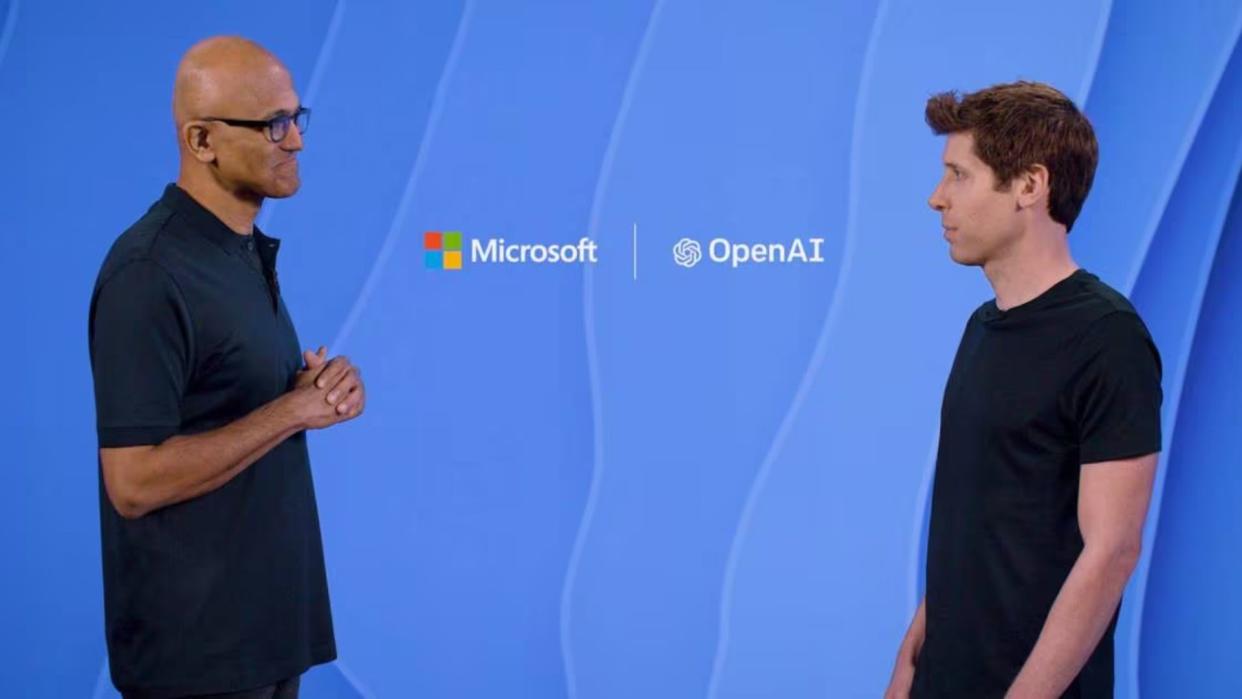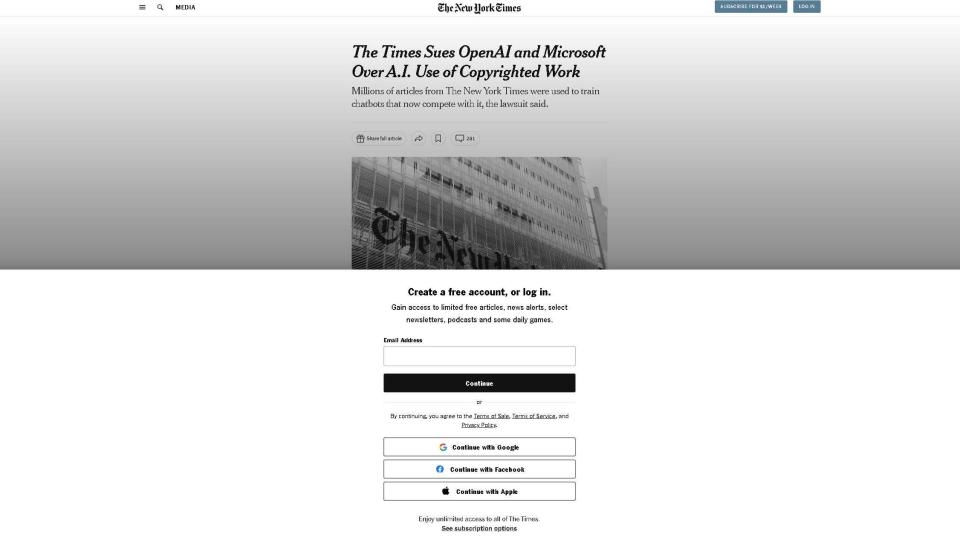New York Times sues Microsoft and OpenAI for impacting its business, claims generative AI models don't qualify for fair use

What you need to know
Microsoft and OpenAI partner on the leading AI chatbot in ChatGPT.
These AI Models train themselves by scraping the internet for content, often paraphrasing or directly quoting sources without compensation.
The question of whether AI models fall into fair use is already being investigated by government regulators, but the NYTimes have taken the issue to the courts.
If the courts side with the NYTimes, it could be a huge blow to all AI models.
The New York Times has announced it is suing OpenAI and Microsoft over AI use of copyrighted work. Breaking the cardinal rule of a news outlet of never allowing yourself to become the story, the New York Times has decided to stand up to Microsoft and OpenAI in the hopes of helping their bottom line.
In the lawsuit filed by the New York Times, the plaintiff discusses how the use of New York Times copyrighted material by Microsoft and OpenAI is monetarily impacting the New York Times. While I personally agree that the issue at hand here needs to be addressed, the fact that I can't actually read the New York Times coverage on this lawsuit on their own website because I would have to subscribe to read it is likely a larger reason for their declining revenue.
The real story here is the fight for copyright protections and fair compensation for content creators, whether they be journalists, artists, or storytellers. This lawsuit, if it doesn't end in a settlement, has the chance to make it all the way to the Supreme Court and define the future of AI in the world.
Why is the New York Times suing Microsoft and OpenAI?

The topic of the lawsuit is not something new and has been a simmering pot ready to boil over for a while now. We recently discussed how, in response to regulators looking into AI and fair use, Microsoft believes that end-users should be responsible for copyright infringement instead of the companies. The New York Times' suit, though, is slightly different, and they state that the actual scraping of the information by Microsoft and ChatGPT should be stopped as that information is not being purchased from the copyright holder.
While Defendants engaged in widescale copying from many sources, they gave Times content particular emphasis when building their LLMs—revealing a preference that recognizes the value of those works. Through Microsoft’s Bing Chat (recently rebranded as “Copilot”) and OpenAI’s ChatGPT, Defendants seek to free-ride on The Times’s massive investment in its journalism by using it to build substitutive products without permission or payment.
The New York Times also stated that the company has been trying to discuss a resolution with Microsoft and OpenAI, but it has not come to a resolution. The New York Times blocked OpenAI's web crawler back in August, per the Verge, and other companies seem to be following suit, but this doesn't solve the issue of the "millions of articles" OpenAI has already used to train ChatGPT on.
The New York Times is asking for court assistance in forcing Microsoft and OpenAI to remove the New York Times' copyrighted material from the AI models datasets. The below bullets are pulled from the "Prayer for Relief" in the lawsuit.
WHEREFORE, The Times demands judgment against each Defendant as follows:
1. Awarding The Times statutory damages, compensatory damages, restitution, disgorgement, and any other relief that may be permitted by law or equity; Case 1:23-cv-11195 Document 1 Filed 12/27/23 Page 67 of 69 68
2. Permanently enjoining Defendants from the unlawful, unfair, and infringing conduct alleged herein;
3. Ordering destruction under 17 U.S.C. § 503(b) of all GPT or other LLM models and training sets that incorporate Times Works;
4. An award of costs, expenses, and attorneys’ fees as permitted by law; and
5. Such other or further relief as the Court may deem appropriate, just, and equitable.
Does AI fall under fair use?
This is the real question at the heart of this lawsuit. As previously stated, this issue is already being looked into by the U.S. Copyright Office. However, it seems, likely due to the worsening economy, that the New York Times doesn't feel that they can wait for a bureaucratic resolution to the issue; rather, they want to ask the courts for a swifter response.
Any content creator on the web right now, especially writers, feels the pain being caused by the advent of AI. If the AI bots were sequestered to only function on their perspective websites or applications, it wouldn't be such a big issue, but with Copilot integrated into Bing and now Google testing AI results for searches, many news and publication sites on the internet are seeing decreased traffic. Searches using AI-generated results are really just "paraphrasing with style," as Toy Story's Woody might say, rather than using any actual intelligence.
The biggest issue facing the New York Times though is their choice of opponent. Satya Nadella is kind of pitching a perfect game with the recent fight against multiple world governmental regulators with the closure of the Activision Blizzard King acquisition to fighting off an internal coup at OpenAI, which led to the ousting of Sam Altman until Satya Nadella got involved.
If this lawsuit goes the distance and does end up setting a precedent or forces the U.S. Copyright Office to accelerate its decision on fair use with regards to AI, ultimately leading to the decision that companies are required to compensate the source content creator, it will forever change the future of AI.
What do you think about the New York Times suing Microsoft and OpenAI? Do you think the Times has a legitimate case? Let us know in the comments.
